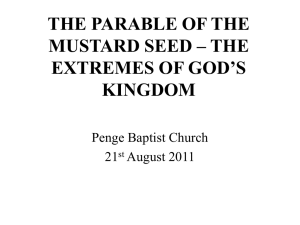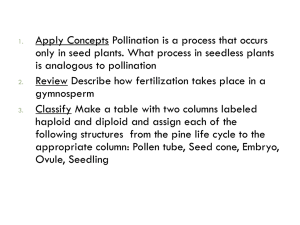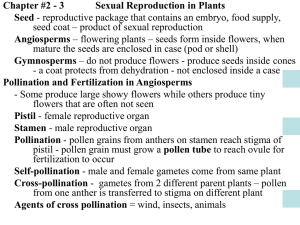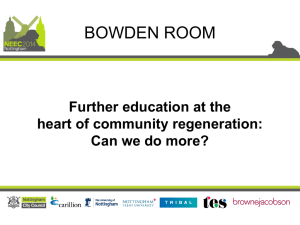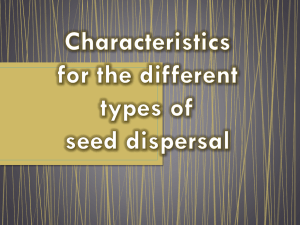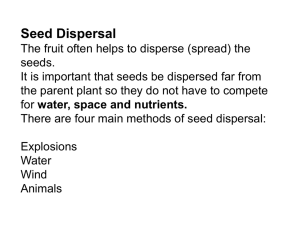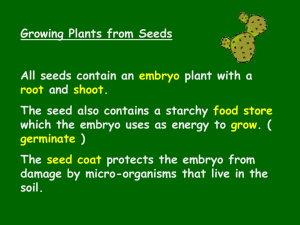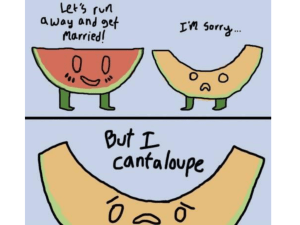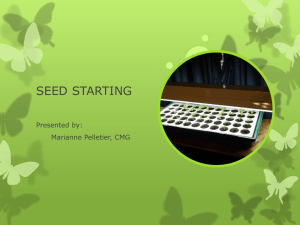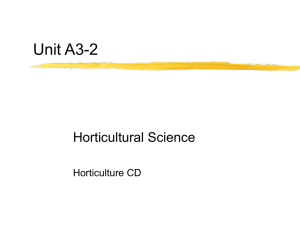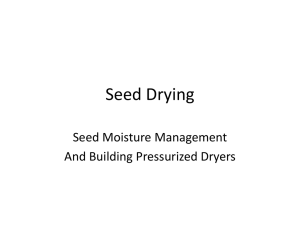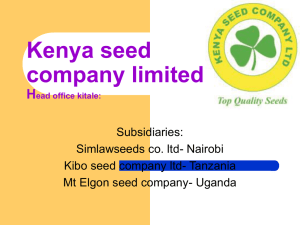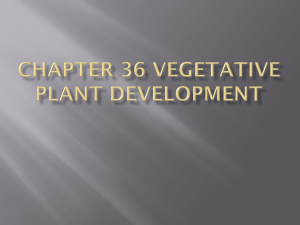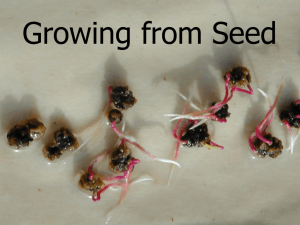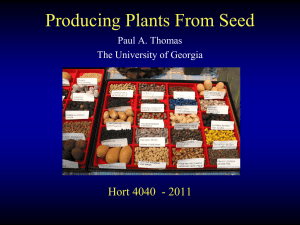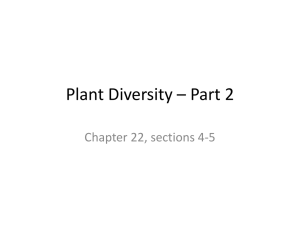REGENERATION
advertisement
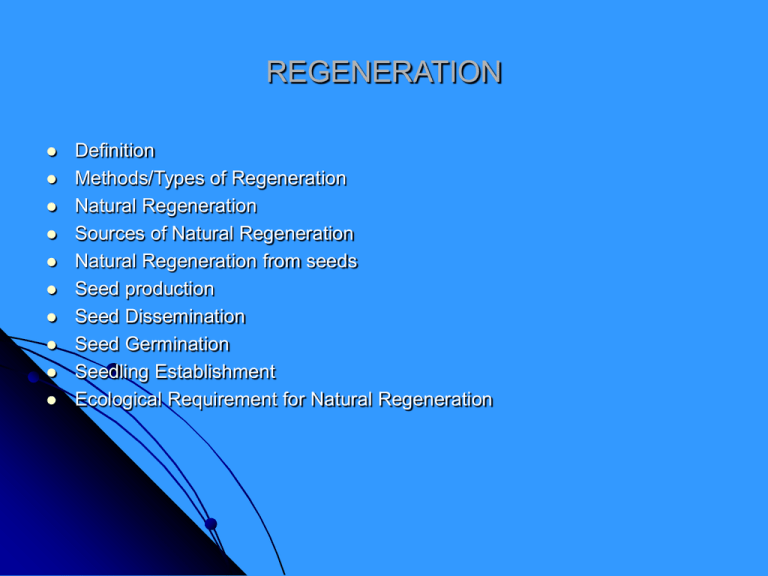
REGENERATION Definition Methods/Types of Regeneration Natural Regeneration Sources of Natural Regeneration Natural Regeneration from seeds Seed production Seed Dissemination Seed Germination Seedling Establishment Ecological Requirement for Natural Regeneration DEFINITION ... replacement of the old forest crop with a crop of nwer generation ... new growth that develops in a forest crop before felling is generally called an advance reproduction or an advance regeneration ... renewal of a forest crop by natural or artificial means Methods/Types of Regeneration Natural regeneration Artificial regeneration Assisted natural regeneration Natural Regeneration Refers to the natural process by which plants replace or re-establish themselves. ... regeneration by self sown seeds, coppice or root suckers, i.e. without human interference (Cremer, 1990) Regrowth, which occurs naturally after stress or disturbance (Temple and Bungey, 1980). It may be growth from seed of both pioneer or permanent species, or growth from lignotuber (e.g. Eucalyptus spp.), rootstock (Melaleuca spp.), etc. remaining in the ground. Sources of Natural Regeneration from seeds or by sexual means from vegetative parts or by asexual means Natural regeneration from seeds: seed production seed dissemination seed germination seedling establishment Seed production Species:every year (Tectona grandis, Dalbergia sissoo, Acacia nilotica) alternate years (Sorea robusta, Terminalia alata) atfter a long interval (Abies pindrow, Anoquissus latifolia) Flowering periodically (Strobilanthes, bamboos) Age of the tree:most abundant and best quality seeds produced after attaining a certain height best seeds are produced by middle-aged and medium-sized trees young as well as old trees produce seeds of less geminative capacity and seedling vigour Soil condition:a base rich soil stimulates seed production over abundance of nitrate retards seed production Seed production Climate:a warmer climate favours early and heavy seed production hot and dry years are followed by heavier crop of seeds late frost and rain storm are harmful Crown and root space:large and well developed crown bears more seeds judicious thinning contributes to crown development and creates space for root development Others:fire injury lessens the mass production of seeds fungus and insect reduces the seeds production girdling too has a negative impact on seed production Seed dissemination wind water gravity animals explosive mechanism Seed dissemination By WIND seeds are winged, hairy or light examples: Dipterocarpus, Terminalia, conifers, Dalbergia, Acer, Betula, Rhododendrons, Oroxylon, Bombax, Popolus, Salix By WATER Trees grow near water courses or by the water body seeds are able to float examples: teak, Acacia, catechu, Tarmarix, Casuarina By GRAVITY seeds are heavy seed coats are hard examples: oak acorns, Juglans regia and diospyros By ANIMALS seeds are stony which can pass with the dung examples: Bronssonetia, Trema, Vitex, Morus Sticky seeds (Desmodium, Flemingia, Andropogon, Rumex) Seed dissemination By EXPLOSION seeds are covered by pods seeds pods are dehiscive examples: Viola, Oroxylum, Geranium
